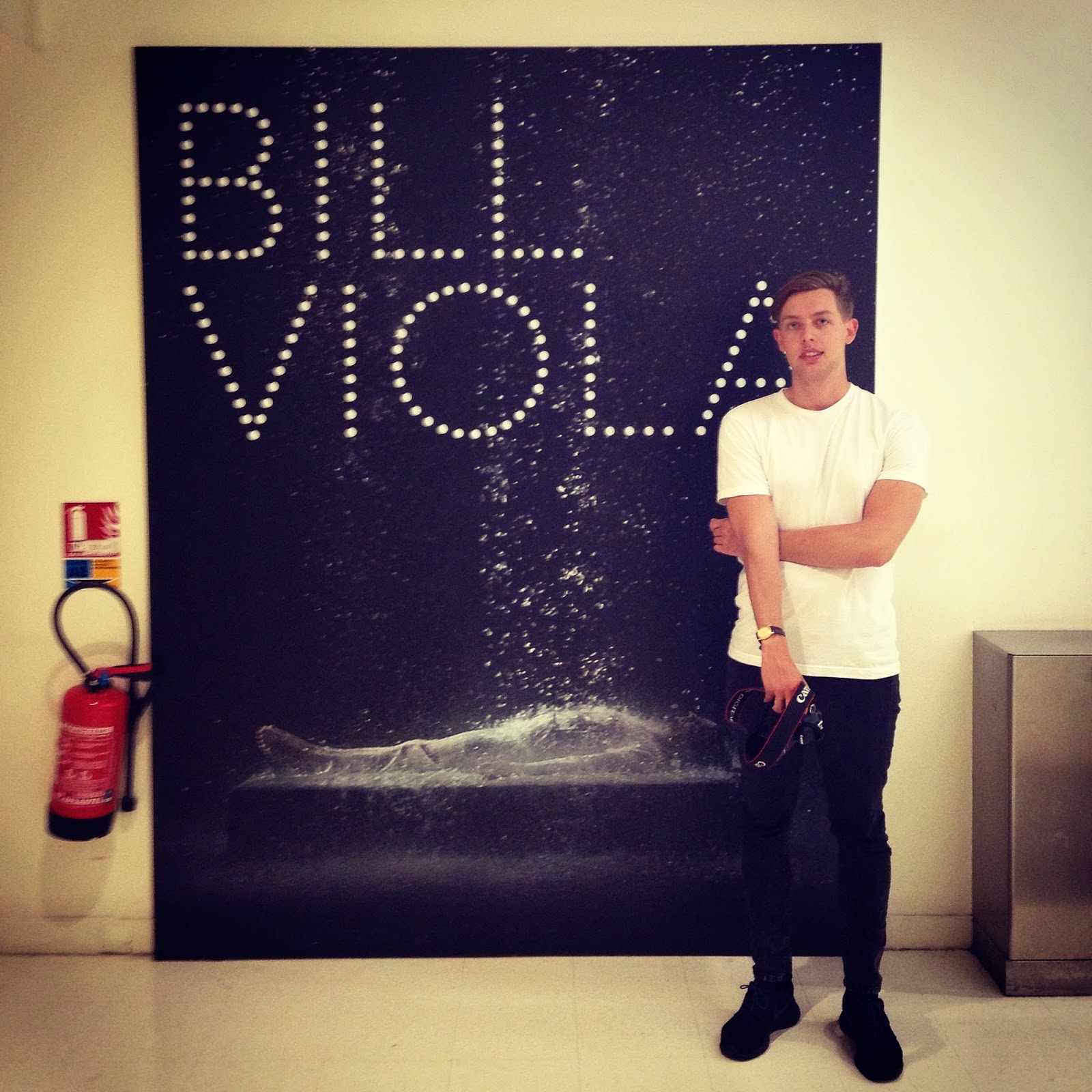Contemporary Art
at the Grand Palais, Paris
Monumenta: Ilya and Emilia Kabakov
10th May – 22nd June 2014
Tourist crowds on a Saturday morning may seem like a reckless
choice, but after a stodgy brunch at the uber-cool, yet deeply unfriendly Holy
Belly in the 10th, we ventured over there early to catch the biennial Monumenta
commission and it seemed it had rather fallen under the radar. The first point to note is that one must enter the alarmingly vast exhibition space with an open mind,
because you will most likely leave totally and utterly dazed and confused.
The brainchild of
Russian artists Ilya and Emilia Kabakov, this metaphysical experience leaves
you utterly spellbound. They present the concept of a utopian village, called ‘L’étrange cite’
beneath Europe’s biggest Belle Époque domed roof. It consists of a disorientating
labyrinth of temples, chapels, and archways, nestled within a maze of
blindingly white domes.
Of the somewhat disorientating selection, we were
captivated by a few spaces in particular.
‘Le centre de l’energie cosmique’ was an ancient civilisation presented
in the form of a silvery scientific city, which then leads you into ‘Manas’.
This space presents a two tier Tibetan outpost, with an earthly, but also
celestial level, which inhabitants use to seek spiritual development. ‘La
chappelle blanche’ followed Malevich’s “white on white” dream of infinity as well
as the fact as referencing the fragmentation of the art of antiquity in places
of worship.
The piece blends idyllic imitations of Impressionist outdoor scenes
with mock Soviet realism in the form of cheerful workers in a faded palette
juxtaposed with a splash of blood. This chapel has the power to shock, but
simultaneously gives you food for thought.
What makes this exhibition so
stirring is the perplexing layout, which lets you transcend conventional
curating and appreciate this dreamscape on another level, be it through
photography or personal experience. I would highly recommend going, but ensure that you read all of the corresponding leaflets and blurbs if you want to have a chance at understanding what lies ahead.
Bill
Viola
5th
March - 21st July 2014
Bill
Viola’s brilliant and beautifully curated retrospective is laid across an
infatuating labyrinth of dark rooms. The understated beauty of his slow moving,
but somewhat addictive films lures us in. He is a contemporary American video
artist, known for using innovative sound and imaging technology such as slow
motion. He focuses on fundamental human experiences such as birth and death,
transfiguration and consciousness and his trademarks are fire and water, which
bring intense emotional experience into his work.
The
exhibition begins with a projection of an ethereal man simultaneously drifting
back and forth at various depths of field. He wanders a desolate dessert scene
at night, which is reminiscent of the haunting Australian film Picnic at
Hanging Rock (in which schoolgirls are seemingly lost to an alternative
dimension). The diaphanous pyjamas worn by the subject and the close ups of the
rippling linen were incredibly beautiful. As you watch the film you feel drawn
in to the man’s journey, unable to abandon him in his hallucinations.
The
other particularly captivating film was the
encounter, in which two screens face each other at either end of the room
and show two men in casual modern dress, juxtaposed with two women in
traditional saris. The sound of the desert wind as they walk towards and away
from each other during the film’s loop magnifies the evocative power of this
film, which gives us a desperate sense of loss, when the subjects eventually
leave the screen as we are excluded from their journey.
In
The Dreamers, there is a sense of
calm which floods you as you watch these people submerged in water as their
hair and clothing moves with its energy. This theme of the force of water is also
visible as it bursts through a suburban house in the Going forth by day: the deluge, which is shown in a large dark space,
where the audience lie sprawled on the floor to watch the events of four
simultaneous films unfold.
The key film was the incredibly spiritual, Tristan’s Ascension, depicting a lifeless man lying still and gradually being drowned in cascading water before rising up through the incredible force of it – all without movement or reaction. Not unsurprisingly given the brevity of the piece, it was originally created to accompany Wagner’s opera Tristan und Isolde. It is enthralling, because of the paradox of the man’s stillness, with the unrivalled strength of the falling water, which seems to crush him before he is saved. I would definitely declare it to be one of the most moving films I have ever seen. The later, Going forth by day: the first light also carried the same reference to Jesus and the theme of being drawn to heaven.
The
key film was the incredibly spiritual, Tristan’s
Ascension, depicting a lifeless man lying still and gradually being drowned
in cascading water before rising up through the incredible force of it – all
without movement or reaction. Not unsurprisingly given the brevity of the
piece, it was originally created to accompany Wagner’s opera Tristan und Isolde. It is enthralling,
because of the paradox of the man’s stillness, with the unrivalled strength of
the falling water, wn. The later, Going forth by day: the first light also
carried the same reference to Jesus and the theme of being drawn to heaven.
As if sent by Bill Viola himself, last night we watched the monumental electrical storm unfold and these are a few of my more successful shots of the lightning to prey upon...












